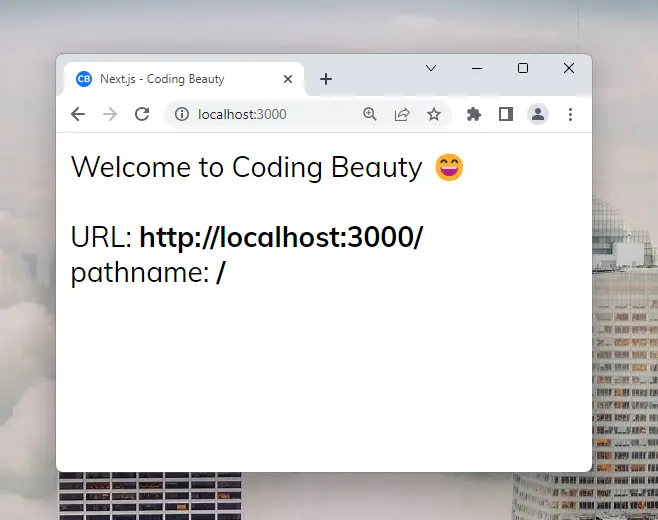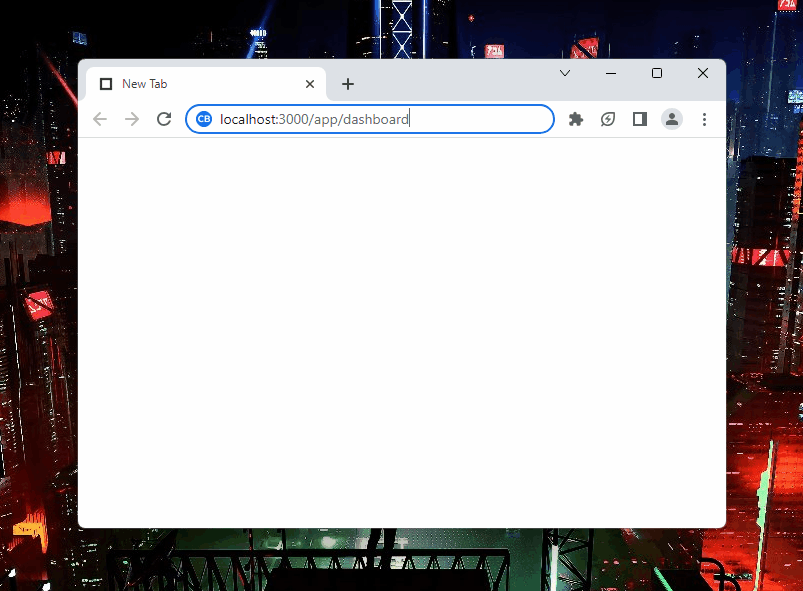nextjs-current-url
Quickly get the current URL or route in Next.js client & server environments
Usage
Next.js client component
nextjs-current-url has a useUrl hook that quickly gives you the current URL in a browser-rendered component.
It returns a URL object.
URL let's you easily access specific parts of the URL.
useUrl works in both pages and app router.
Example:
import { useUrl } from 'nextjs-current-url';
import Head from 'next/head';
export default function Home() {
// 👇 useUrl() returns `null` until hydration, so plan for that with `??`
const { href: currentUrl, pathname } = useUrl() ?? {};
return (
<>
<Head>
<title>Next.js - Coding Beauty</title>
<meta name="description" content="Next.js Tutorials by Coding Beauty" />
<meta name="viewport" content="width=device-width, initial-scale=1" />
<link rel="icon" href="/favicon.png" />
</Head>
<main>
Welcome to Coding Beauty 😄
<br />
<br />
URL: <b>{currentUrl}</b>
<br />
pathname: <b>{pathname}</b>
</main>
</>
);
}getServerSideProps()
To use nextjs-current-url in getServerSideProps, call the getUrl function, passing the context object's req property.
Example:
import { NextPageContext } from 'next';
import Head from 'next/head';
import { getUrl } from 'nextjs-current-url/server';
export function getServerSideProps(context: NextPageContext) {
const url = getUrl({ req: context.req });
return {
props: {
url: url.href,
},
};
}
export default function Home({ url }: { url: string }) {
const urlObj = new URL(url);
const { pathname } = urlObj;
return (
<>
<Head>
<title>Next.js - Coding Beauty</title>
<meta name="description" content="Generated by create next app" />
<meta name="viewport" content="width=device-width, initial-scale=1" />
<link rel="icon" href="/favicon.png" />
</Head>
<main>
Welcome to Coding Beauty 😃
<br />
<br />
URL: <b>{url}</b>
<br />
Route: <b>{pathname}</b>
</main>
</>
);
}Next.js middleware
next-js-current-url also works in Next.js middleware files.
Call getUrl and pass the NextRequest object in the middleware function.
src/middleware.ts
import { NextResponse } from 'next/server';
import type { NextRequest } from 'next/server';
import { getUrl } from 'nextjs-current-url/server';
import { getSession } from '@/lib/session';
export async function middleware(request: NextRequest) {
const { href, orgin } = getUrl({ req: request });
const session = await getSession(request);
if (!href.startsWith('/signin') && !session.user) {
const signinUrl = new URL('/signin', origin);
signinUrl.searchParams.set('continue', href);
return NextResponse.redirect(signinUrl);
}
}
export const config = {
matcher: '/app/:path*',
};


